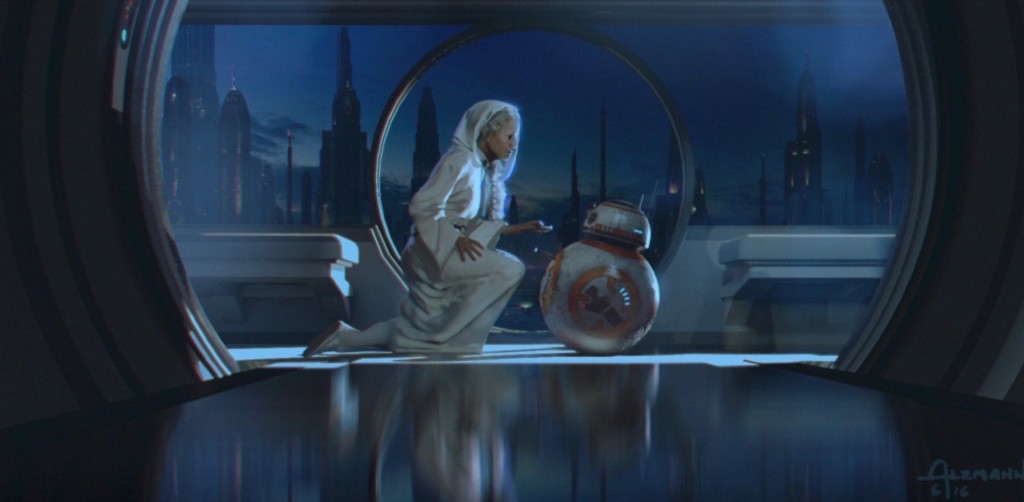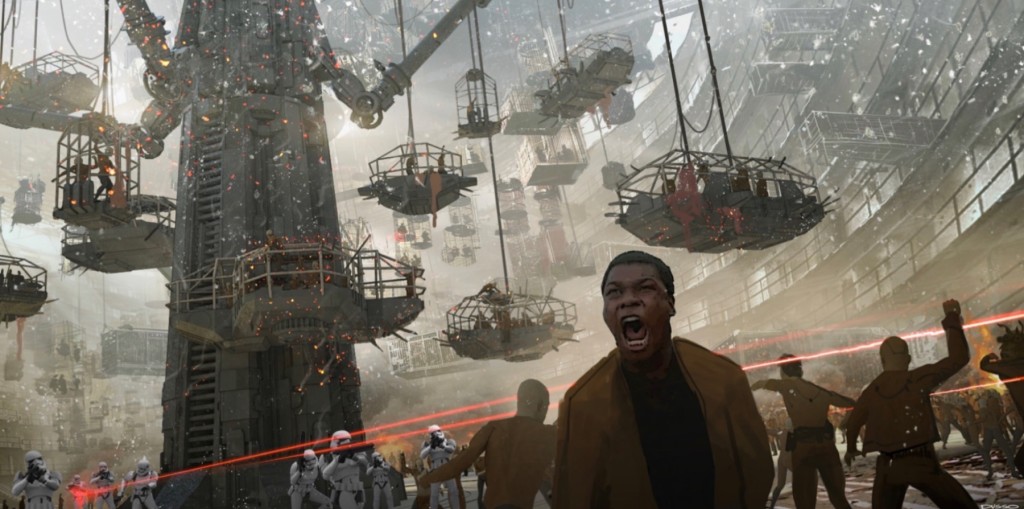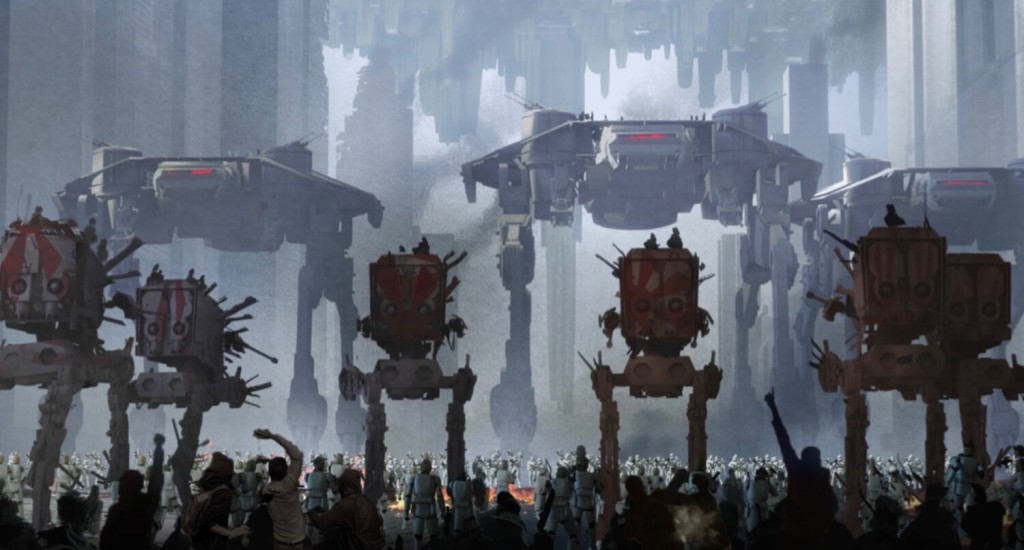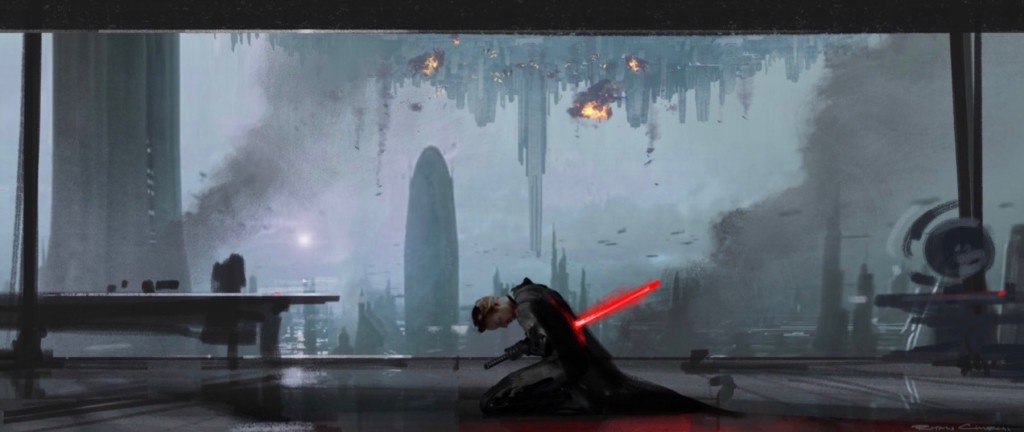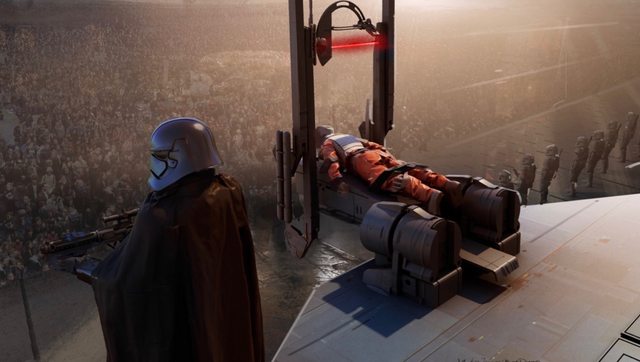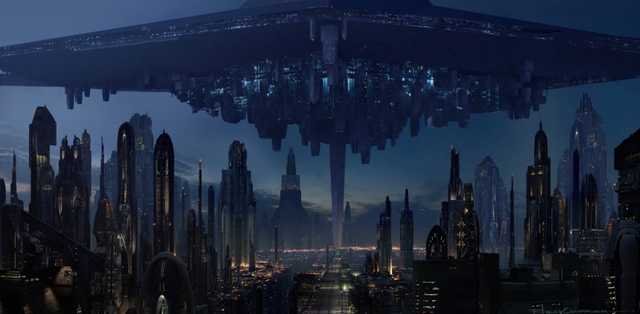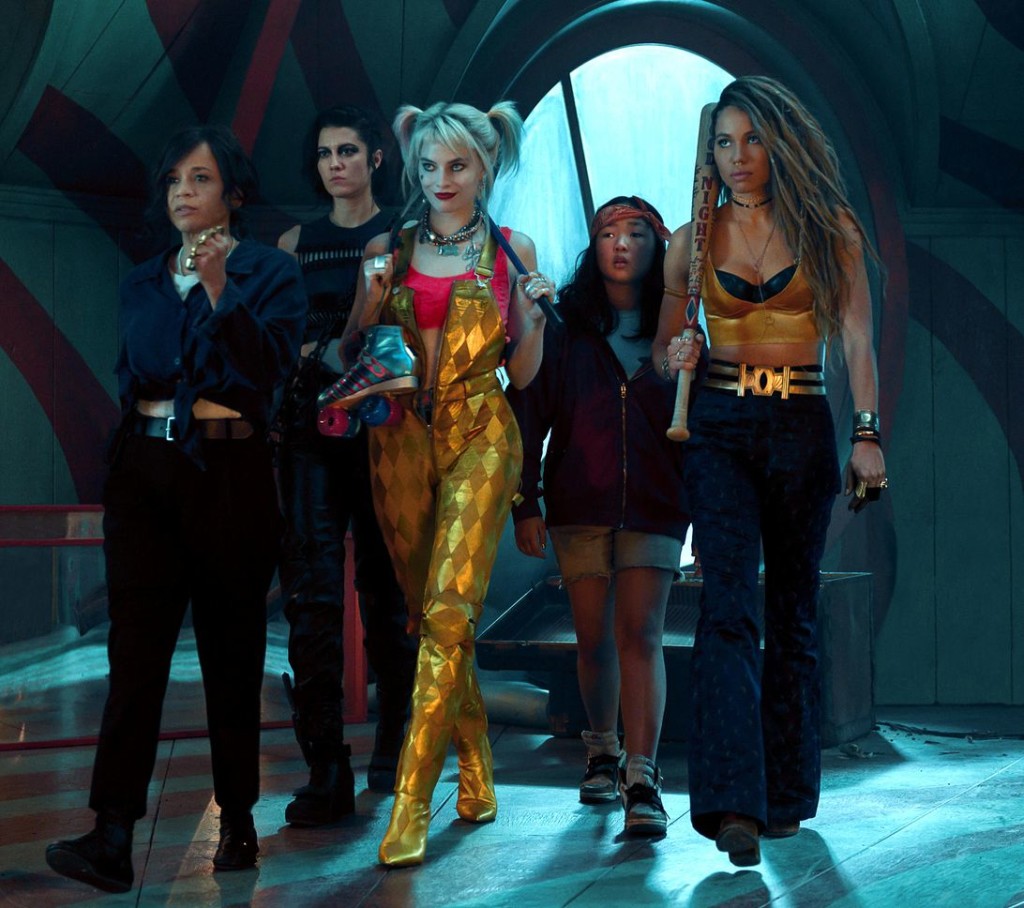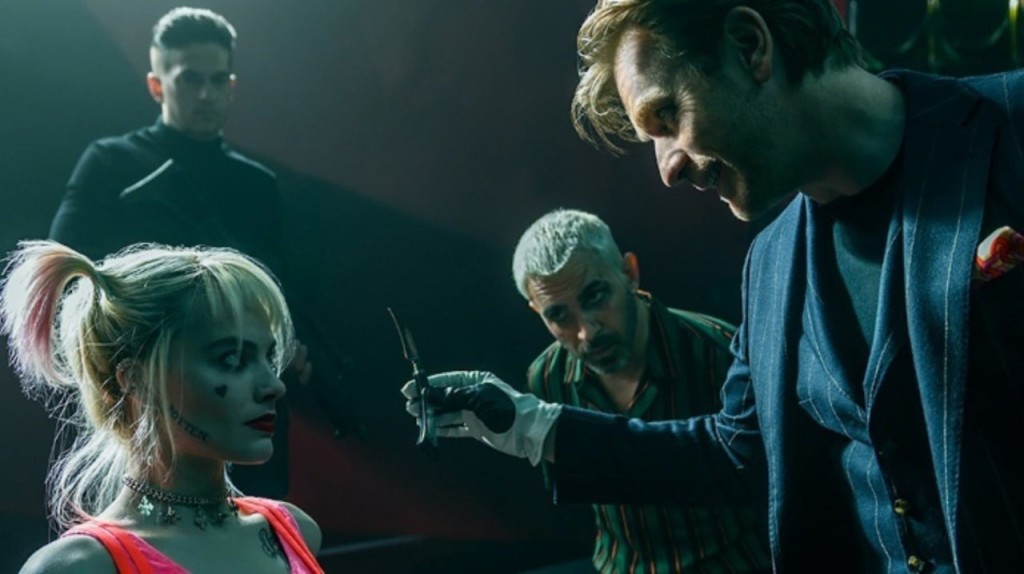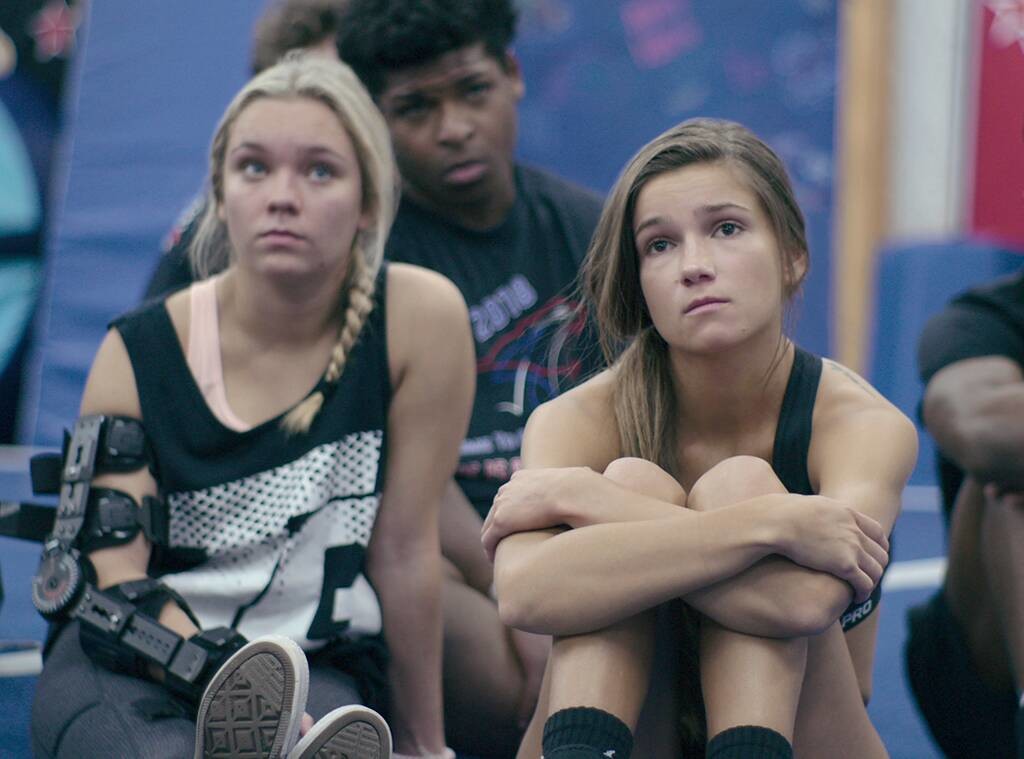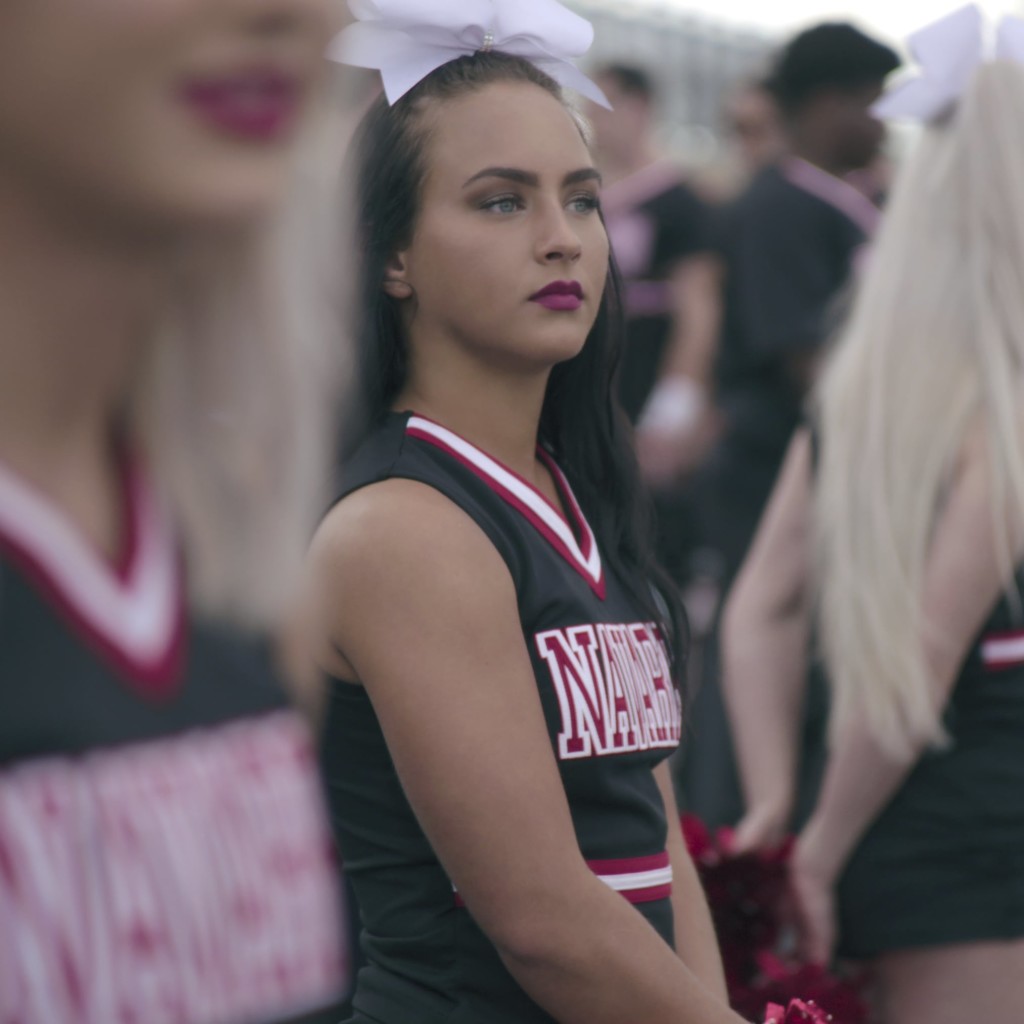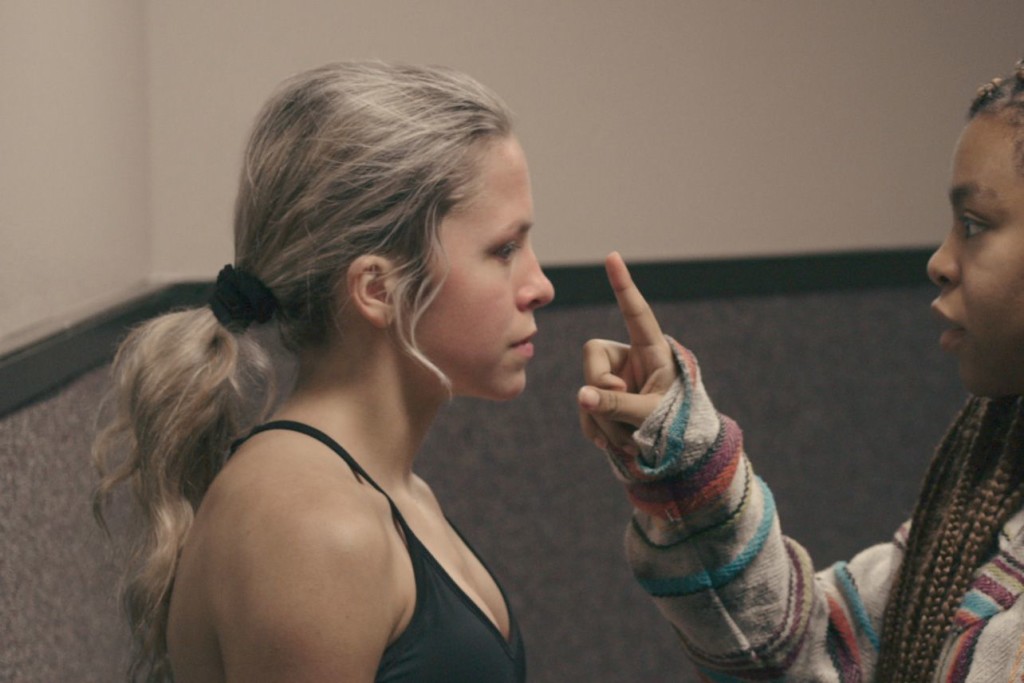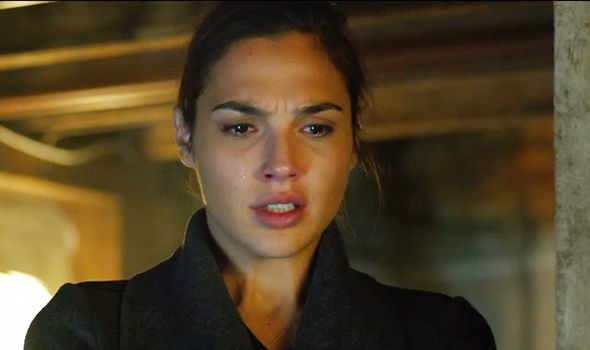Genre: Science-Fiction/Fantasy
Premise: A ragtag group of resistance fighters infiltrate the First Order-ruled world of Coruscant in an attempt to ignite an ancient communication beacon that will recruit thousands of worlds to come join the fight and defeat the First Order.
About: Before Rise of Skywalker, there was what was supposed to be the original 9th movie in the Star War franchise, Colin Trevorrow’s, “Duel of the Fates.” But Kathleen Kennedy ain’t being Kathleen Kennedy if she’s not firing a Star Wars director so she canned Trevorrow right as the film was about to start shooting. She then called up JJ Abrams, the director of mega-hit, Episode 7, and asked him to come back and direct the final film, which he did. Many seemed confused by the fact that Derek Connolly and Colin Trevorrow received half of the writing credit on Rise of Skywalker considering Kennedy so publicly cited a bad script as the reason Trevorrow was fired. Will that mystery be solved today via a Scriptshadow review? Grab your brooms, channel the force, and let’s find out together.
Writers: Derek Connolly & Colin Trevorrow
Details: 130 pages
Yesterday’s post ended up being pretty divisive so I asked myself, “What can I do to bring everyone together again?” The answer came to me like a beam of light. What brings people together more than STAR WARS?
So I clicked open the script that was originally meant to be Episode 9 to definitively find out if Kennedy made a crucial mistake, allowing the superior Star Wars movie to be lost forever in the pages of a screenplay.
After the opening crawl tells us that things are, like, REALLY bad for the Resistance, we settle in on something called the “Kuat Orbital Ring.” Our good buddies Poe, Finn, Rose, and BB-8 have snuck into a migrant worker site run by the First Order hoping to free all the slaves. Unfortunately they get sniffed out and have to run for their lives. As they’re fighting, Rey appears out of nowhere with her two-sided lightsaber. She then gets the idea to steal one of the Imperial Starships hovering over the planet.
Rey’s able to take the ship using a stronger version of Obi-Wan Kenobi’s Jedi mind trick, informing the ship operators to do what she says. They then fly the ship back to the Secret Resistance Base that Hux is trying to sniff out from the First Order’s new headquarters on Coruscant. Leia is waiting for them and, after a little chat, someone brings up that there’s this Old Republic technology underneath the Jedi Temple on Coruscant that, if used, could alert all the planets in the galaxy to come and fight for the Resistance. The whole clan agrees to try and activate it except for Rey, who’s having visions pulling her towards Kylo.
Speaking of Kylo, he’s in the Remincore System being trained by 7000 year old Master Sith Lord Tor Valum, a dude so versed in the dark Jedi arts that he taught Master Plaegius! Valum teaches Kylo a new trick that allows him to suck the life out of other life forms. So what does Kylo do? HE SUCKS THE LIFE OUT OF TOR VALUM, turning Jedi knowledge into a form of fast food. Kylo still needs to learn some dark secret underneath the temples of this planet, however, to become all-powerful. If that happens, he will be more powerful than 1000 Death Stars, able to crush planets from anywhere in the galaxy. Yikes!
Back on Coruscant, Finn is running around the sewers, looking for this darn beacon thing. He eventually stumbles upon an underground society of displaced Coruscant residents. He asks them if they’re ready to rise up and fight and they say, you bet we are! Hux learns about their plan, though, and orders his troops to find and squash these cellar dwellers. But that’s going to be difficult, since Leia has just shown up with the stolen First Order starship – a starship filled with Resistance fighters and tons of ships and AT-AT walkers to attack the First Order with.
Rey finally arrives on the Dark Jedi planet to stop Kylo. But Kylo ain’t having any of it. The two fight and Kylo easily has the upper hand. Rey tries to recruit all her Jedi powers to stop him, but then Kylo uses Tor Valum’s life-sucking power to suck out Rey’s soul! It’s not looking good for the Resistance either, as they’re getting pummeled by the First Order on Coruscant.
Luckily, at the last second, Leia force-calls Kylo, tells him to stop being such a meanie, and Kylo gives Rey her soul back, sacrificing his own life in the process. And on Coruscant, Finn finally got that message out, so all the planets come to help the Resistance. Hux is really upset that he lost so he goes over, grabs one of the many lightsabers he’s collected over the years, ignites it (it’s a purple one!) and sepaku’s himself. The Resistance wins and Rey comes back to teach a new generation of Jedi. Oh yeah and Rey’s blind now. I don’t remember why.
Let’s deal with the obvious question first. Is this a better script than Rise of Skywalker? No. Not by a long shot. It’s not bad. It’s actually decent most of the time. But the knock against Tervorrow has always been he doesn’t surprise you. He doesn’t make any bold choices. And you can see that here. People who complained about Rise of Skywalker being generic and safe – read this script. You’ll see what actual generic and safe looks like.
The first moment I knew the script wasn’t going to be great was the opening. It wasn’t clear why we were at this Orbital Ring place. I think it was to save slave workers but I’m not positive. One of the reasons the Jabba the Hut sequence in Return of the Jedi is so strong is because the objective is so strong – rescue Han Solo. And clear! We know why they need to infiltrate Jabba’s palace. We didn’t know anything like that here.
Then there was the stealing of the Star Destroyer. In screenwriting, the bigger the objective is, the bigger the plan needs to be, the more convincing everything needs to be, the harder everything needs to be. You’re stealing a giant ship here. It can’t be as easy as waving your hand at the captain and saying, “You’ll do what we say now.” There’s even a moment where Hux asks his side general what’s going on with the ship and he says, “Oh, everyone from that ship is on leave. Only the bridge crew is inside.” In other words, they made stealing an impossible-to-steal element the easiest thing to steal in the world. Storytelling works best with the opposing logic. You want to make stealing something the hardest thing in the world because that means your characters will need to overcome genuine obstacles to succeed. Everything your characters are after in a story must be earned, not handed to. So that was a major faux pas right away.
Also, the sequence that held the most promise ended up being the biggest dud. Kylo Ren learning from this 7000 year old Sith Master. We’ve already seen Jedis learning from masters in past Star Wars stories. But we’d never seen Siths learning from Sith Masters. So there was potential to really have fun with that. But we only get a couple of scenes with this Master Tor guy before Kylo kills him. You can’t build someone up as surviving 7000 years worth of Jedi obstacles and then kill him in two scenes. It’s inconsistent.
Also, I’d heard that Luke’s ghost was going to haunt Kylo in this. That’s another cool idea that we hadn’t seen in Star Wars before. But that happens for all of one page. So it was another letdown.
There was one set piece that stood out in the script. When everyone is trying to escape the Rebel Base as its being attacked by the First Order, the First Order shoots this giant laser beam down and blows this big chunk of planet up just as Poe and Rey have left in their ship. And the Knights of Ren come in, chasing them in their ship, in a sequence that has all this floating planet debris in the way. So, for example, they’re having to zip up the side of mountains that are floating in space. One of the hardest things to do in these giant event movies is come up with original set pieces. They’ve all been done. So any time someone comes up with a fresh idea, I give them props.
Now that I’ve read the script, I think I know what happened with the firing. The thing studios and executives and producers are most terrified of is the ending. The ending has to be great. Why? Because that’s what the viewers leave with. If you have 90 minutes of a good movie and the last 30 minutes are bad, that’s what the audience remembers. So that’s what they tell everyone else ( “The ending blew.”). This is why they did a 50 million dollar reshoot of Rogue One’s ending. They wanted to get that right.
I suspect that Kennedy fired Trevorrow because of the script’s ending. It’s weak. For starters, Rey and Kylo are off on some planet in the middle of nowhere fighting each other while the war was going on on Coruscant. So it felt insignificant. Especially because they didn’t do a good job establishing the power Kylo would gain and what he would do with it. There’s a reason the ending of Star Wars is so great. We see the Death Star rounding that moon. And we know what it’s capable of once it clears the moon and has a shot at the Rebel planet. We were told earlier in Duel of Fates that Kylo will have the power to crush planets from anywhere in the galaxy, but there’s no visual representation of that to scare us. The implication is that maybe it’ll happen some day. That’s not nearly as scary as seeing a Death Moon seconds away from blowing up a planet.
We may have forgiven this if Rey’s personal battle with Kylo would’ve been great. But all the fight beats, with the exception of him taking out her soul, were lackluster. For example, we learn the real reason Rey was left on the planet was to be hidden from Kylo. It wasn’t exciting. And fights are supposed to build. It should feel like air is being pumped into a balloon that’s getting bigger and bigger. But Rey and Kylo’s fight was more like, she got tired and beaten down and the two of them sort of limped their way to the end. And then Kylo deciding to give Rey’s soul back because his mom Skyped him didn’t feel earned at all.
So I’m guessing that when Kennedy hired JJ back, her primary directive was, “We need a huge ending.” And while I don’t have inside information, I’m guessing that was the motivation for JJ bringing the Emperor back. He knew he had to make that ending huge and the Emperor offers you that opportunity. And I will say this. You may not have liked that Emperor-Rey-Kylo finale in Rise of Skywalker. But I promise you that it was a hundred times better than the Rey-Kylo ending in this script.
I’m still confused about why Connolly and Trevorrow got half-credit for Rise of Skywalker. The only connection I see between the two films is that Leia does a lot of force-Skyping in this. She’s leading the Resistance. And then the life-force grab at the end of Rey and Kylo’s fight inspired the Emperor’s life-force grab at the end of Rise of Skywalker. But outside of that, the plots are very different. I guess that mystery will have to be solved another day.
Next Star Wars we’re going to see is October, when Mandalorian Season 2 debuts. In the meantime, there is no official Star Wars movie on the Disney calendar. Will we ever see a Star Wars feature film again?
[ ] What the hell did I just read?
[x] wasn’t for me
[ ] worth the read
[ ] impressive
[ ] genius
What I learned: You don’t get points for connecting the dots – The problem multi-narrative scripts (like Duel of the Fates) have is that there are a lot of plot points and a lot of plot points that need to intersect. For example, you have Rey over on one planet, Poe over on another planet. And you know that by page 60, you need them to meet up. This forces you to create some dots that must be connected in order to get the characters to the place where you need them. This can be tough to do. And what happens in a lot of the scripts is that the writer is so happy to JUST GET ALL HIS DOTS CONNECTED, that he thinks he’s done once that’s finished. This is especially true of beginner writers who just want to be applauded for bringing everything together in a way that makes sense. Unfortunately, this is just the beginning of your work. Once you’ve connected all the dots so that they make sense, you must go back into the individual narratives and make them as strong as they can be. Duel of the Fates had a very “happy I’ve connected the dots” feel to it. Technically everything made sense. But none of the individual storylines, nor the larger storyline, were as good as they could’ve been.
Genre: Comic Book
Premise: Harley Quinn tries to figure life out after the Joker dumps her and gets caught up in a diamond theft that ignites Gotham’s newest baddie, Black Mask, to try and kill her.
About: Harley Quinn was projected to make 45-55 million dollars this weekend. That was down from the projections Warner Brothers had when making the movie, which were closer to the 75-85 million dollar range. Sadly, the film finished with a measly 33 million bucks and is considered a full-blown box office disaster.
Writers: Christina Hodson
Details: 110 minutes
Harley Quinn.
I’m not here to dance on this movie’s grave. A lot of people worked on this film and, unlike a lot of movies that come out of this town, these people really cared. It’s said that there was a woman heading up every major department in the film. And all of them felt they had something to prove.
Nobody was more determined to make Harley Quinn work than its star and producer, Margot Robbie. I saw an interview where Margot was asked what her favorite Harley Quinn tattoo was and she didn’t skip a beat, going into an extensive explanation about Harley’s first tattoo and how she got it and what it meant to her. All I could think was, “Wow, Margot really cares about this character.”
Unfortunately, somewhere along the way of this film’s development, they decided to embrace an anti-male slant. In retrospect, I guess this makes sense. The movie was being written and prepped during that rabid six month stretch where everyone thought Twitter was real life and if you were Caucasian and had an xy chromosome, you were the devil incarnate.
The first white man to enter this story is a drooling bald-headed creepy pet salesman who says he accepts sex for payment. Harley feeds him to her hyena. The next white man is an a-hole who calls Harley a slut. Harley breaks his legs. The next four white men introduced are gunned down while eating dinner by the Huntress. They don’t even have time to protest their death. The next two white men introduced try to rape Harley after a long night out.
Put simply, if you are white and a man in the Harley Quinn universe, it ain’t going to end well.
Finally, about 15 minutes into the film, we see that Harley has one Caucasian male friend – the cook who makes her daily greasy egg sandwich. The two are smiling and jovial. I thought, okay, I’m glad they’re at least portraying one white guy as cool. And then as Harley’s leaving, her voice over reveals that the man is Armenian.
Look, anybody can make any movie they want. If you want to portray an entire demographic in a negative light, you are well within your rights to do so. It’s art. It has no rules. However, you have to then be accepting when the demographic you’re destroying has no interest in seeing your movie. I mean who wants to spend two hours being told that people who like you are bad?
I guess I’m surprised because it’s such an odd business choice. You’re hating on the demographic that spends the most time in movie theaters. It’s weird. Why didn’t somebody come in and say something? “Maybe we should be inclusive and positive about all races and genders?” In the immortal words of Dana Carvey as George Bush: “Neht gunna dew it.”
Eventually, a movie emerged out of this. Sorta. The plot follows Harley Quinn as she’s coming out of a bad breakup with the Joker. The film shamelessly attempts to be this year’s Deadpool, with Harley Quinn bee-bopping her way through an endless “listen to how clever I am” voice over narration, all of which could’ve been distilled down to a single sentence (“The Joker and I broke up.”).
The plot then decides to take a bathroom break, forcing the audience and the characters to wait around for him. In the meantime we learn something about mobsters in Gotham and that someone’s going around shooting people. None of it ties into anything that you would call “relevant” but we do meet club owner Black Mask, played by the only person who comes out of this movie unscathed, Ewan McGregor. He has a few funny lines.
Finally, after a good twenty minutes, the plot waltzes back in the room with a theatrical, “fiiiiiiiiiine!” and gives us some direction. A young Korean pickpocket girl inadvertently lifts a million dollar diamond off of Black Mask’s second-in-command and Black Mask, who has captured and is about to kill Harley Quinn, for some reason hires her to go after the girl and get the diamond back.
Harley finally finds the girl, who by this point has swallowed the diamond. This means Harley can’t turn her in until the diamond passes through her system. So Harley takes her back to her hideout where, within the span of five minutes, she becomes best friends with the girl, and now she’s not so sure she wants to give the diamond or the girl up to Black Mask. Unfortunately, that doesn’t matter because Black Mask is coming to get them.
I wish I had anything good to say about this movie.
But I don’t.
Most of the badness here is baked into the script itself.
The narrative is uber-weak. It’s Harley Quinn whining for half an hour about I don’t even know what. Then, out of nowhere, a random girl steals a diamond, a diamond we only learned about two minutes prior, and then everybody is after the diamond and that’s the plot. I bring up the fact that we only learned about the diamond two minutes prior because it shows how low the stakes are in this movie. The thing everyone is after had zero significance in the audiences’ eyes. The only reason it exists is to engineer some semblance of a plot.
Then there are all these little things that conveyed how amateurish the writing was. At one point, in the middle of the first act, Harley’s getting beat up, and, while talking to us in voice over, says, “In the storytelling world, this device is known as a complication.”
Um, no it isn’t.
A complication requires that your character have an objective to complicate. At this point in the story, there is no goal. Nobody is after anything. It was just Harley Quinn rambling in voice over while we meet a bunch of people we’d later learn had nothing to do with the story. So if you’re going to try and be clever and fourth-wall breaking and bring up screenwriting vocabulary, you might want to actually learn what the device is you’re talking about.
But there’s a much bigger problem at the heart of this movie and it’s something I’ve been asking ever since it was announced that Harley Quinn would get her own movie. What is it that Harley Quinn DOES? What makes her special? In other words, why does she deserve her own movie? I spent two hours with this character this weekend and I still can’t answer that question. As far I can tell, she’s just some loudmouthed eccentric person who likes to play dress up. What is it about that that makes someone think she deserves her own movie? I don’t get it.
And then there was the directing, which vacillated between generic and extra generic. The action scenes felt like the director was learning on the job. Many sequences came across as if the crew ran out of time and had to stick in a bunch of those garden-variety stunt moves you can see in a thousand 1985 B-action movies. There were occasional flashes of inspiration, like a couple of shots where Harley beats someone up with a bat. But they’d be surrounded by tons of locked down wide-angle shots that any second year film school student at USC could’ve pulled off. Where is the vision here? Where is the specialness that separates the good directors from the wannabes – that makes you say, “Oh, I understand why this director got the job over everyone else.” Cause those qualities were not evident in the finished product.
This was a misfire on every level.
And the problems started at the conception stage. Nobody ever asked the question, “What makes this character special?” You then coupled that with an aggressive campaign to exclude a group of people. So should you really be surprised that no one showed up to your movie? Maybe there are a few lessons to learn from this if the people involved are willing to have honest conversations with themselves.
If you’re looking to watch a good female-driven movie this week, go to Netflix instead and watch Horse Girl. It’s weird and trippy and unique and it doesn’t try to paint any one demographic as bad.
Finally, props to the two screenwriting Oscar winners this year. The Academy got it right! JoJo Rabbit and Parasite were my top two favorite screenplays of the year!
[x] What the hell did I just watch?
[ ] wasn’t for me
[ ] worth the price of admission
[ ] impressive
[ ] genius
What I learned: Make sure your title and your movie line up. I know this seems obvious. But it’s a mistake I encounter fairly often. And it happened with today’s film. This movie is titled “Birds of Prey,” but it’s not about this “group” known as the Birds of Prey at all. They’re barely in the movie. This movie is 98% Harley Quinn doing Harley Quinn stuff. Have the title reflect that.
You know how when everyone tells you you have to watch something and it gets to the point where it’s so annoying how obsessed everyone is with that something that you’re determined to never watch it as some sort of spiteful point to be made that you’re not as weak-minded as all these sheep who only like something because everyone tells them to like it and then one day you finally sit down to watch that something, determined with every bone in your body to hate it so you can storm back to the masses and tell them they were all wrong only to get five minutes into the first episode and cancel everything you’re doing that day so you can watch the show all in one sitting?
That’s what happened when I watched Cheer, the new Netflix docu-series about a top-flight junior college cheer team in the middle of Texas. Soon I was yelling through the television to assure Morgan that, no, people do care for you, and to Jerry, for always being positive despite all the negativity surrounding him (#beaJerry), and leaping up with my hands over my mouth when someone forgot to catch Sherbs and she cracked her arm in half.
How did this happen? I’d went through my entire adult life without so much as sniffing a cartwheel. Then for six hours, my entire life revolved around cheerleading. This may seem insignificant for a screenwriting site. But there are actually screenwriting lessons to be learned here and it all starts with the concept itself. What do I always tell you guys? One of the best ways to turbocharge a concept is by adding irony.
Cheerleading is a happy peppy smiley sport. When you think of cheerleading, you think of joy. You think of people being positive. Yet one of the first things we see when we dolly in on a Navarro practice session is how serious everyone is. They’re practicing their routine, which involves lots of flipping and throwing people up 20 feet in the air. If one person isn’t paying attention, someone could snap their neck. As series favorite Morgan says in the second episode, “Whoever thought of chucking someone into the air and seeing how many times they can flip them… that person is psychotic.”
But it isn’t just the seriousness. A lot of the people who come to this sport have had really difficult lives. Star team member Gabi Butler has parents who have built the family business around her, with Gabi having no say in the matter whatsoever. She is not a daughter to them. She is a paycheck. And you can see how much strain this has put on her and her family relationship. In one of her segments, before an 8 hour practice day, they force her to get up at 4am to shoot a commercial. Then yell at her for not doing more to promote “their” brand.
Or then there’s Morgan, who has the most heartbreaking story of them all. While she was in high school, her dad just left her to start another family. She lived in a barn with her brother. And then her brother left too. So she was literally living all by herself with no income and no food until she was 18. She says she began to believe during that time that nobody cared about her and that things as simple as a passing smile at school were the only things that kept her going.
That irony, that contrast between what we expect cheerleaders to be like and what they actually are is a huge reason the show works so well. For example, if you followed a cheerleading team where everyone was happy and excited all the time, you’d get bored of it immediately. On the flip side, if you wrote a show about grave diggers and they were all the happiest people in the world, it’d be great. The contrast is what makes the product so alluring. That’s the power of irony.
There was another lesson I learned from the show in one of the press interviews. Several featured cast members were asked “Why them?” There were 40 people on the team. Why did these seven people get all the focus? And one of the cast members answered, “The director interviewed every one on the team. We were the ones they thought had the most interesting lives.”
For example, one of the most popular characters is Jerry. Jerry is unlike any cheerleader you’ve known. He was 300 pounds at one point in high school and still cheering. His mother died unexpectedly when he was young. He got lucky that a family adopted him. He’s relentlessly optimistic no matter how many terrible things happen in his life. Let’s take a step back and pretend we’re a writer looking for a character to put in our screenplay. Are we going to pick Jerry? Or are we going to pick Bob, an enthusiastic cheerleader who’s really trying to kick butt at nationals so he can impress some folks in LA in order to pursue his real passion, acting?
The same way these documentarians look for the most interesting people to document, that’s how you should be looking for characters for your stories. Are you just giving us the standard formula character? Or are you giving us someone who’s unique and who’s lived a full life, a life that’s going to affect them in your story, give them flaws and weaknesses they have to overcome. Since Jerry wants everyone to be happy, he doesn’t stick up for himself. When he gets kicked off mat, he doesn’t go up and ask the coach why. He accepts it. That’s a lesson he has to learn during the season. And you only get that kind of stuff when you start off with a deep character to begin with. Their past will inform their present flaws.
Even from a traditional plotting standpoint, Cheer is screenwriting’esque. One of the first things we’re told in the show is that “NATIONALS IS IN TWO MONTHS.” Right there we’ve got our goal, our stakes, and our urgency. From there, they do a great job creating obstacles via injuries. One of the most surprising things about Cheer is how often people get injured. They’re falling and slamming into the floor constantly. So when you only have a few girls who can manage the trickiest parts of the routine – being at the top – and one of them is all of a sudden done for the year because of an injury, we’re wondering, “How are they going to overcome this?”
Remember, once you set the goal for your story, the only job you have is CREATING DOUBT that your characters will achieve it. And Cheer was really interesting in that it has the same problems as Friday Night Lights or some of these other “top dog program” shows. Navarro always wins the championship. They’re the best team in the nation. So if you have a storyline where the goal feels like a foregone conclusion, the obstacles must be bigger. The setbacks even more daunting. And the show does an amazing job at that. People are constantly getting injured. Monica, the coach, is seen in back rooms convinced that the replacement cheerleader doesn’t have what it takes, that they’ll screw up come game time. And if she thinks that, it must be true. So our doubt that Navarro will win is solidified when we walk into that final episode.
I recommend that everybody watch this show. I know. It seems like something you wouldn’t be into. But I promise you if you give it ten minutes, you’ll change your mind. And pay attention to the simplicity of the formula because that formula has a lot of crossover with screenwriting. A simple goal – win the championship. But a complex cast of characters. Each person is struggling in their own unique way, which adds to the doubt that they’ll be able to achieve their goal as well as achieve success in their life after cheering. Afterwards, tell me what you think! Unless you think it’s bad. In that case, you’re wrong.
Genre: Drama/Thriller
Premise: The wife of a megachurch pastor seeks atonement after she and her lover kill an attacker in self-defense, but don’t report it out of fear of exposing their affair.
About: This script finished number 12 on last year’s Black List. Andrew Zilch has been working in Hollywood since the early 2000s, where he was a crew member on Minority Report. He’s since moved onto producing television, where he’s been working steadily. Most recently he produced the show, “Good Mythical Morning with Rhett and Link.”
Writer: Andrew Zilch
Details: 119 pages
I love this setup. It’s simple but effective. Someone or a pair of people or a group of people kill someone and try to cover it up. But, since it’s a movie, the murder doesn’t go away, finding a way to creep back into their lives.
The only issue with the setup is that it doesn’t have the EXTRA. The EXTRA is that extra component that makes your movie bigger than the average bear. For example, let’s say you want to write a TV show about a family. Well that’s a pretty standard setup, isn’t it. There’s no EXTRA. But what if you made the family one of the richest in the world? That would allow you to explore the types of things that you don’t get to see in a typical family drama. “Succession” is currently one of the hottest shows on television. All because of the EXTRA.
Claire and Erik have rented an Air BnB cabin out in the middle of the wilderness so they can do fun adult things all weekend. But while they’re doing fun adult things, a man named Ronnie stumbles in, looking for something to steal. After grabbing Claire’s big diamond ring, he tries to sneak out, but runs into Erik, and that’s when all hell breaks loose. Confusion leads to a fight and Ronnie ends up falling down the stairs cracking his neck.
There’s no humpty-dumpty redemption for poor Ronnie. He’s dead.
Three months later we come to learn that Claire is married. But not to Erik. To Seth, a pastor at New Dawn Church, which is doing so well it’s about to sign a mega-deal with a TV station for broadcasting rights. We also learn that Erik buried Ronnie’s body on the lot and that, so far, nobody knows what happened to him. That changes within the first ten pages as the police announce that Ronnie’s body has been discovered.
In the article announcing the discovery, Claire learns that Ronnie had a daughter, Addie, which makes her feel insanely guilty. So she goes over to visit her under the pretense that she saw the story about Addie’s dad and wanted to see if New Dawn church could help in any way. While there, Claire meets Addie’s deadbeat boyfriend who knocked her up, Kyle, who happens to be an injured bull rider. Kyle and Claire dislike each other immediately.
While Claire’s friendship with Addie grows, Claire’s husband keeps pushing her to help him start a family. For some reason, Claire hasn’t been able to get pregnant (hint hint, she’s trying not to). Also, Erik keeps stopping by whenever Seth isn’t around to plead with Claire to get back together. During one of these talks, Kyle is sneaking around back and overhears them talk about killing Ronnie.
With newfound leverage, Kyle makes his demand. He wants 100k and he won’t tell anyone. Claire says I’ll do you one better. I’ll keep the church safe open tomorrow night and you can take everything that’s in there – over 200k. The only catch is you have to leave Addie alone. Kyle does just that, barely escaping. Claire believes all the drama is finally over. But when Kyle tells Claire that the woman who claims to be her new best friend killed her father, everything falls apart.
Like I said in the opening, you have to have a plan when you’re writing a script based on a concept that could be a five episode subplot in a soap opera. This is a MOVIE we’re talking about here. It’s got to be bigger than real life in some way. It’s gotta have the EXTRA. And the big question with Wayward is, does it have the EXTRA?
Here’s what Zilch did. He didn’t have just any woman cheat on her husband and keep a murder secret. He had the wife of a preacher do it. That elevates things quite a bit since we’re talking about some major irony there. Already, the setup feels juicier than your average “dead body” script.
From there, it’s about acing the two screenwriting mainstays – character and plot. In a high concept screenplay, you don’t have to write the greatest characters ever. Even your plotting can be sloppy because your concept is doing the heavy lifting. But when the concept is average, scripts like this don’t make the Black List unless the character work and plotting are exceptional.
I’ll tell you the exact moment I knew the writer was better than your average writer. It’s when Claire visits Addie and we meet Kyle for the first time. Note that Kyle was the 9th or 10th character introduced in the script. And we quickly learn, in that scene, that Kyle is a bull rider who recently got injured. Which is why he’s doing such a poor job caring for Addie. He’s not making any money.
It was the fact that a character introduced this late in the story had such a specific backstory that I knew I was in good hands. Cause the majority of the scripts I read, the writer doesn’t know anything outside of the immediate world of our hero. They couldn’t tell you what Boyfriend of Secondary Character #3 looks like, much less their job and how it’s affected their lives over the last six months.
I don’t run into a lot of writers who care to go that deep.
And some of you might be saying, “Who cares if this random dude is a bullfighter?” It’s not a pointless backstory. His desperation because he doesn’t have a job is why he wants to exploit this friendship that his girlfriend has with this rich woman. It drives the plot. But had the writer not gotten to know Kyle’s life, he may not have found this storyline. That’s the hidden gift of doing the extra work and finding out what every character’s life is like. New plot ideas pop up all the time when you do that stuff.
I did have a couple of problems with the script, though. And, unfortunately, they were big ones.
I didn’t buy into this idea that some guy was walking through rural Oklahoma, hoping to bump into a house where he could steal something. I mean what’s the steps per likelihood of target in that scenario? 800,000 steps for every one house that may be available to rob?
Normally, this wouldn’t bother me. But as I’ve stated before, the pillars of your plot need to be rock solid. If there is a plot development that is crucial to your story working, that plot development must be pristine. It can’t have anything in it that makes the audience say, “Wait a minute, hold on. He’s doing what?” Cause the second the audience starts asking questions like that, they become aware that they’re watching an artificially constructed story. And because this moment is setting up the entire movie, that means the question is going to linger the entire movie.
It wouldn’t matter if it was a nothing scene ten pages later. But this scene sets up the whole movie!
A similar problem happened later on. Kyle has the upper hand. He can literally tell the cops that Claire and Erik killed a man. So how is it that Claire gets to say, “Here’s the location of our church safe. Go steal the money from it.” Why does the person with the leverage have to perform the dangerous act? Any sane person would say, “Why don’t you get the money out and bring it to me?” And since this was also a major plot point, it hurt the final act.
Which is frustrating because there’s so much good here. All the characters pop. You’ve got this delicious dramatic irony dripping throughout, as Claire is befriending the daughter of the man she killed and pretending like everything is hunky Dorey with her pastor husband. You’ve got the raised stakes of an impending TV deal for the church, which ratchets up the tension with Seth, causing lots of head-butting with him and Claire. You’ve got fun little contrasts such as Seth being a devout Christian and Erik being a hardcore atheist.
I feel if you fixed those two pillar scenes that this script could easily be an “impressive.” But right now, it’s in that “worth the read” category, at least for me.
[ ] What the hell did I just read?
[ ] wasn’t for me
[x] worth the read
[ ] impressive
[ ] genius
What I learned: Give a little history in the description of the area your story takes place in. Here’s a description of the town in the script: “Once a rough-and-tumble frontier town, Ransom is now an upbeat Tulsa suburb.” Towns can have arcs just like characters. And a simple description of that arc gives the setting life. As opposed to if you just said, “An upbeat Tulsa suburb,” which elicits a much weaker image in the reader’s head.
Genre: Sci-Fi
Premise: After a mission to destroy a black hole that endangers mankind goes wrong, an astronaut awakens in her escape pod to find that decades have passed seemingly in a moment. Now, with an old body and fragile mind, she battles against the elements of space & time to complete her mission.
About: This script finished in the Top 10 of last year’s Black List.
Writer: Nabil Chowdhary
Details: 84 pages
Today we have something special. It’s a Black List script from a writer who made his internet screenwriting debut right here on Scriptshadow with his very first screenplay. I went back and read my choppy review of that ghost script to learn that I liked the setup but felt the script took a dive in the second half.
But this is a documented roadmap for how to go from first screenplay to a Verve-repped Blacklist screenwriter in 4 years. And while that may seem like a long time to those new to the screenwriting trade, it’s a rare feat when a screenwriter can go from Beginner to Pro in under 5 years. Let’s take a look at what Chowdhary is up to with his latest script.
Clare wakes up in a pod in the middle of space. She doesn’t remember any event that led to this situation. Then Hex comes online (the ship’s nice version of “Hal”) and tells Clare she was on a mission to destroy the black hole that is quickly eating up the solar system.
Her and her team were sent out to Saturn to throw an anti-matter pill into the black hole, where, according to science, the matter and anti-matter would cancel each other out, and the black hole would disappear. But something went wrong along the way and Clare was spat out into space in her escape pod.
And there’s an unfortunate side effect to the event. Clare brushed up against the event horizon and, in the process, aged 30+ years. She’s now an old woman. It’s a real bummer when she finds this out but she doesn’t have time to dwell on it because Mary, from mission control, calls her, asking if their mission was a success. Uh no, Clare says. And I now look like Wilfred Brimley!
Mary tells Clare she’s going to set some coordinates for Clare to head to near Mars, where they’ll be able to remotely bring her back to earth. After hanging up on Mary, Hex brings up some questions about her, asking if Clare has ever even heard of her before. Clare agrees that, yes, there is something suspicious about Mary.
But she doesn’t have time for ’back at the house’ drama since her oxygen is running low. If she’s going to get that rose, she needs to hurry up! After navigating their way through our solar system’s asteroid belt between Jupiter and Mars, Clare starts to realize she’s probably not going to make it out of this alive. Which means making amends with her mom in a video selfie.
But then Clare gets a distress call from a mysterious woman who may have also escaped from their old ship. Clare commands Hex to ditch this whole Mary return-to-earth project and head back to the scene of the crime, where that hungry black hole is still munching everything up. Hex reluctantly brings her to the distress call’s location, only to realize it’s actually INSIDE THE BLACK HOLE. To find out what’s going on, they’ll have to travel inside. What will happen to our space-faring heroine? Check out “Pod” to find out.
The first thing I noticed is that just like when Chowdhary started, he’s still going into his screenplays with a high concept idea. He knows that the most likely way to get noticed is to start with a strong concept.
High concept ideas DO NOT automatically mean better screenplays. There’s a strong argument to be made that the best screenwriting comes in the lower-concept variety. But the reason high concept is still the better choice is that you’re getting more people requesting high concepts than low ones. And in a numbers game business you want to buy as many lottery tickets as you can. It’s not hard to do the math. 20 out of 100 script requests is going to yield a higher return than 2 out of 100 script requests.
I can’t emphasize this enough. I get so many writers coming to me complaining that they aren’t getting enough requests from their queries. I then ask them their concept and they say, “Oh, it’s a drama about friends trying to become actors in LA” or something like that. I mean, come on. You’re really surprised people aren’t requesting that?
I also noticed that Chowdhary has become more focused. This is a big key for screenwriters – learning that good storytelling isn’t following whatever whim pops into your head while you’re writing. That can be a valuable experiment, don’t get me wrong. It’s important to try a bunch of things early in your career to see what you’re good at and what works. But as you get better, start telling a tighter story with a strong focused narrative. “Pod” is definitely that.
Double finally, you’ve got a super cheap sci-fi project to shoot. And you’ve got a compelling mystery at the heart of your story. What happened that sent Clare’s pod shooting out of that ship? We want to know so we keep turning the pages.
But I struggled with Pod in two areas. The first is in the “obstacle” department. I read a lot more “isolated in space” scripts than you’d think. My guess as to why there are a lot of these scripts is because there are a lot of people who want to make their 2001. And the mistake a lot of them make is that the obstacles facing our hero are ones we’ve already seen.
You’ve got the oxygen running low trope. You’ve got the asteroid field trope. You’ve got the AI entity to give your hero someone to talk to. Just like we were talking about yesterday with garden variety suspect questioning scenes in procedurals, stuck in space movies always have these “been here already” plot points that are called upon again and again.
On top of that, I didn’t understand the flight capabilities of this pod. From what I could gather, it’s barely bigger than the person inside of it. But it has the power to travel around the solar system within a matter of minutes. I suppose this is an unknown future where, conceivably, major technological breakthroughs could have created something like this. But to travel from Jupiter to Mars in minutes? That was a tough buy.
There are two kinds of sci-fi out there. There’s broad sci-fi which is basically fantasy. And then there’s hard sci-fi, where the writers are careful about making everything seem plausible. Star Wars is broad sci-fi. Ad Astra is hard sci-fi. Where you’re going to confuse your reader is when you stuff both of these types of sci-fi into a single script. And that’s what’s happened here. This pod the size of my couch can travel from the sun to Jupiter in minutes?
With that said, I give Chowdhary props for creating a fresh contained thriller in the hardest genre to create reasonably budgeted stories in. He essentially asks, “What if you made Buried in space… and then added a killer black hole?” – And Chowdhary has come a long way with his writing. This script felt a lot more confident. As opposed to his first script, which had a “making things up as I go along” feel to it. This was a better script overall, but didn’t quite reach “worth the read” territory due to the problems I mentioned above.
[ ] What the hell did I just read?
[x] wasn’t for me
[ ] worth the read
[ ] impressive
[ ] genius
What I learned: There are some tropes that are so popular, you assume they need to be a part of your story. So if someone’s up in a space ship and something goes wrong, one of the first ideas that’s going to come into your head is that oxygen should be running low. I’m not claiming you should never use this plot development. But do you really want to use something that audiences have seen in 200 plus movies and TV shows? Obstacles are just like any creation in a script. The more unique they are, the more they’re going to help your script stand out.


